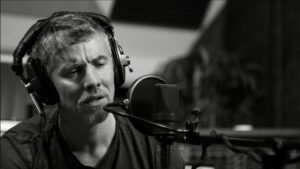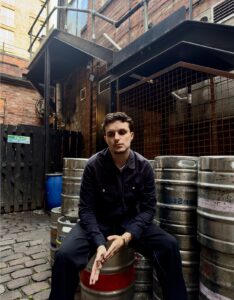At just 23, Paloma León has already spent a decade shaping ‘Piano Music for Movies’, a project that feels both intensely personal and deliberately cinematic. Recorded on a Steinway baby grand at Porcupine Studios in London, the Los Angeles-born, London-based pianist and composer approaches the album as if it were a film reel spooled entirely in memory. Not a single note has been written down; instead, León stores the sprawling 40-plus minutes in muscle and mind, performing the whole body of work from recall. The result is music that feels as much lived as it is composed.
The album’s lead single, “Sunfish,” sets the tone. It recalls Ravel’s impressionistic flights and Gershwin’s jazz-inflected romanticism but avoids imitation. Instead, León threads a voice that is luminous, fragile, and restless, veering between moments of childlike wonder and the undertow of grief. The piece unfolds as a tribute to her late father, who introduced her to the piano with a stern, almost punishing discipline. The memory that anchors it—a capsized boat in Lake Huron—becomes a metaphor for the emotional turbulence coursing through the music: chaotic virtuosic runs crash into calm resolutions, as if love and loss are two sides of the same key.
If the title ‘Piano Music for Movies’ flirts with irony, the music itself takes the promise seriously. These are pieces that feel like they belong to unseen films, pulling on the listener’s imagination in the same way Ryuichi Sakamoto or Jonny Greenwood’s scores do—simultaneously narrative and abstract, grounded in tradition yet free of its constraints. León’s background in fashion and film scoring is evident too: her compositions unspool with a sense of texture, pacing, and visual awareness that transcends the concert hall.
What makes León compelling is her refusal to sit neatly in one lane. She is not simply another classically trained prodigy nor just a composer angling for sync placements. Instead, she’s carving out a hybrid identity, one where discipline and spontaneity coexist. If at times the music threatens to collapse under its own ambition, that’s part of its draw: it’s restless, searching, almost refusing to be pinned down.
With ”Piano Music for Movies, León announces herself not as a traditionalist, but as a composer interested in collapsing boundaries—between concert performance and cinema, between memory and present, between technical mastery and emotional unraveling. For listeners drawn to the blurred edges of modern classical, she’s not just one to watch; she’s already here, pulling you into her reel.







